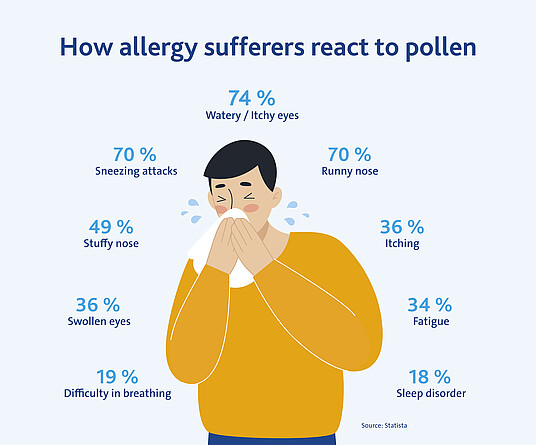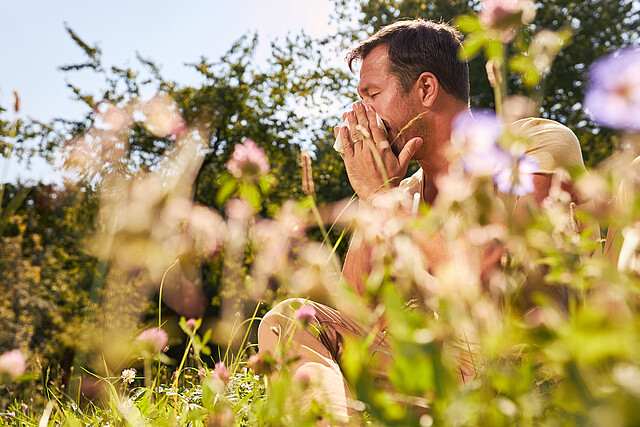Is Allergy Season Getting Worse?
It’s the feeling that we all dread, your eyes begin watering, your throat feels itchy, and you can’t stop sneezing. You may think of allergy season as a springtime irritation, but both Autumn and Winter bring their share of allergens to the table too.

Allergies affect people across the world and symptoms can range from mild discomfort to major health issues, including the need for hospitalization. But what if allergy season was getting longer? Is that even possible?
According to the National Institute of Food and Agriculture, “New research shows that pollen seasons start 20 days earlier, are 10 days longer, and feature 21% more pollen than in 1990—meaning more days of itchy, sneezy, drippy misery.”
The future of allergy season looks even more grim. According to National Geographic, “By 2100, the amount of pollen produced during the flowering season could rise by 40 percent, according to new research published... in Nature Communications.” This rise in pollen would be accompanied by an allergy season that could start as much as 40 days earlier and could stretch 19 days longer.
Climate change is partly to blame for the extension of allergy season. According to the Centers for Disease Control and Prevention (CDC), “Climate change will potentially lead to shifts in precipitation patterns, more frost-free days, warmer seasonal air temperatures, and more carbon dioxide (CO2) in the atmosphere.” These changes could have an effect on when the pollen season begins, how long it lasts, how much pollen plants create and release into the air, and how that pollen could affect our health.
All summer long, record-breaking temperatures have taken over the U.S. “with nearly 1,500 places breaking daily high temperatures,” according to Forbes. Early Fall temperatures continue to trend upwards with AccuWeather meteorologists predicting that fall will be “unseasonably warm following a summer plagued with triple-digit temperatures and high humidity for much of the nation,” according to the Hill. With unseasonably high temperatures and extreme droughts occurring across the country, it is no wonder allergy season has become more and more difficult to handle.
If you struggle with allergies, you’re not alone. According to the (CDC), seasonal allergies affect nearly 60 million people in the U.S. each year. Pollen is the main allergen, released by flowering plants, trees, and grass and spread through the air. How much pollen is in the air at any given time is dependent on the season and region of the country one is in, but the pollen counts are usually highest during warmer weather.
Allergy season not only triggers congestion and overall discomfort, but multiple studies have also shown that allergies impact students’ school performance, productivity at work, and result in more emergency room visits for people suffering from asthma.
The good news is that by tackling climate change we can change the projected growth of allergy season and can hope to curb the high pollen levels being released by flowers, trees, and grasses. This would take substantial effort not only on the individual level but on the national level as well.















